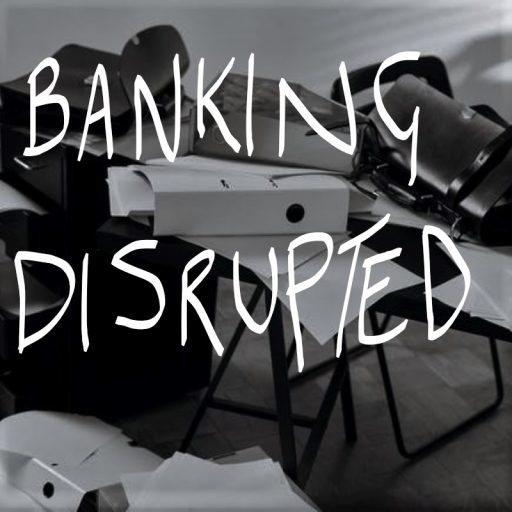Eli Broad is one of the only individuals to have built up two Fortune 500 companies from scratch, in two completely different sectors. He cofounded the home builder Kaufman & Broad in 1957, which subsequently became the largest home builder in the US. The business goal was to cater for a specific niche within the market, namely affordable housing.
Not one for resting on his laurels, he then acquired Sun Life Insurance, to diversify should there be a slump in the housing market. He transformed the Sun Life business into SunAmerica through creating a new business line in retirement savings or annuities. The retirement saving business line was designed to create a differentiator in comparison to other insurers. In 1998 SunAmerica was sold to AIG for $18bn. Broad attributes his success to his primary personality trait of being unreasonable, here he shares some of the key insights into how this trait has generated phenomenal success
Big Messages/Key Quotes :
- Unreasonable or Irrational – There is a big difference between being unreasonable and being irrational, what differentiates between the two is research; the ability to analyse every situation that you find yourself in and use that knowledge in context. In Broad’s sixty-year career some of the key attributes he has used on a daily basis are, the ability to ask a lot of questions, and to seek out the best in your work e.g. the best investments, the best deals, the best people, and the best in yourself
- Why not? Is an immensely powerful question – the ability to ask the why not question is the first step towards achieving success. When children are growing up the question of why not is something that is asked on a very regular basis, and this ability to question disappears the older we become
- Forget conventional wisdom – it only results in ending up with a herd mentality. Any successful business has disregarded conventional wisdom, as these businesses understand that any ability to grow, innovate or invent does not happen without pushing the boundaries of convention.
- Do your homework no matter how much time it takes – this effort is required to reap the rewards. Do not waste time on shortcuts, as there are no get-rich-quick schemes. If you analyse any successful person or business, it is normally the consequence of long periods of hard work. This applies to all situations in life whether you are starting up your own company, changing your job, or undertaking a significant new venture. Everything requires you to start by doing your homework. History is scattered with clues on success, but you will not find them if you do not actually look for them
- First and Second Movers – despite the fact lots has been written about first mover advantage, there is also a lot of value to be had in being second. It is perhaps better to follow the smart first movers. Being able to continually innovate is essential and is more important than being first. No matter what your market position, you need to keep moving ahead and staying fresh, and relevant in the eyes of customers. It is impossible for everyone to be considered an original thinker, so good to remember innovation or invention does not necessarily mean being able to create something from scratch. Innovation can also mean the ability to refine something that is already available in the marketplace, and then calibrate that offering for new customer segments
- Dynamic Prioritisation & the three-hour rule – The ability to prioritise daily is more than making a things To Do List. Prioritisation needs to be more of a dynamic process during the day, with the ability to change the list of priorities as and when more important and meaningful initiatives or activity pop up. In this case being unreasonable in the way in which you prioritise can also ensure that you continue to focus on those things that are adding the most amount of value. Broad also applies the max three-hour rule, that is meetings, museum visits and socialising, to his interactions to ensure time is used productively
- Hiring Talent is easy, keeping hold of talent is harder – Broad has used three strategies when it comes to retaining talent across his businesses. Firstly, stock options are an especially useful tool to ensure that individuals are personally rewarded for the success of the company, this serves to motivate them to bring their best self to the table. Secondly, the ability to offer talented individuals the opportunity to develop and grow is also key. Operating a culture of meritocracy where people can rise quickly based on their achievements as opposed to length of tenure, drives more engagement and motivation. Lastly, the ability to provide a channel for undertaking hard work and raising the bar daily. All help in keeping the best talent with the organisation
- Risk taking – is to be able to ask two fundamental questions; what do I have to lose? And what is the worst that can happen? These two questions combined can help you make an educated and balanced decision on deciding whether to move forward with a venture
- Marketing – Use the process of marketing well, with the aim of understanding your customers and to understand what it is that they value. This should be the guiding principle for any organisation looking to serve customers over the longer term
- Negotiation – the art of any negotiation should be to operate out of fairness. The idea that there are winners and losers in a negotiation is a falsehood, and a successful negotiation should always be one where both parties win. If you operate unfairly you may have won in the short-term, but you have not started a long-term partnership
- Paying it forward – is the ability to use the business expertise and skills that you have developed to make a difference in a much broader societal context, as the ability to start giving does not always have to be monetary. Again, there are some key questions that can be asked to see if any philanthropic activity will be worthwhile over the longer term.
- Will it make a difference in 20 years?
- Would it happen anyway without our support?
- Do we have the right people to make it happen?
These three tests, or three questions, should be used to evaluate the case for making an investment
- Parting thoughts – the lessons above represent some of the things that have come into play to drive success. That does not however mean, following periods of reflection, the way in which that success has been achieved has always been done in the right way. Broad shares some of the compromises that may have not been right in hindsight, particularly around spending time with his family. The biggest life lesson he shares is around his marriage; irrespective of any choices that you make in your personal or professional life, the one decision around who you choose to spend your life with is perhaps more important than how you choose to spend it
Why read this book?
There are some great lessons shared, that are both relevant for both professional progress and personal development. Broad is also very honest around the life “regrets”, which is what makes this a more authentic read. A good book for anyone looking to assess the direction their business/career is taking. The book is richly punctuated with many smart questions, that if answered fully and honestly, can really help set the course for any new life chapter.




